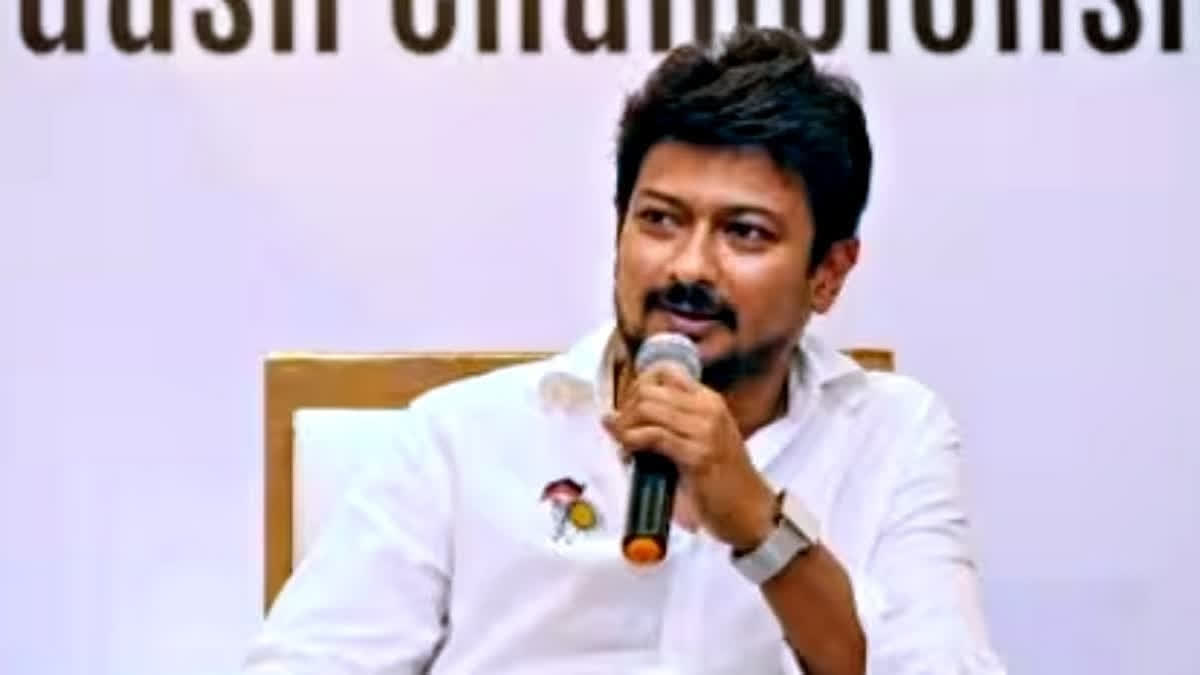Chennai (Tamil Nadu): In the face of outrage and a political campaign against his remarks on Sanatan Dharma, Tamil Nadu Sports Minister, Udhayanidhi Stalin, the crown prince of the ruling DMK, remains defiant. He can afford to be so and remain unscathed since the state has a centuries-old history of a counter-narrative preceding the Dravidian movement itself.
However, it has provided a handle to the BJP and the Sangh Parivar to beat the DMK, by painting it as anti-Hindu and creating a divide in the opposition INDIA alliance.
While Prime Minister Narendra Modi has tasked his Cabinet colleagues to give a 'befitting reply' to the raging debate, in the Dravidian heartland the controversy hasn't evoked any groundswell of opposition. It is no surprise that the young minister is not the first to debunk 'Sanatan', broadly understood here as adherence to rigid religious orthodoxy sanctioned by religious texts and hegemonic Brahmanism.
In modern times, from the late 19th century onward the anti-Brahmin counter-narrative took a mass character through the efforts of social reformers and thinkers like Pandit Iyothee Thass and later by the Justice party and the rationalist leader 'Periyar' EV Ramasamy.
Contesting the hegemony of Brahmins in bureaucracy and in other spheres, especially education, was the credo of the South Indian Liberal Federation (SILF), the precursor of the non-Brahmin movement. The manifesto of the SILF released on November 20, 1916, heralded the rise of a counter-political mobilisation to the Congress, led by Annie Besant, an apologist of Sanatan.
She vehemently opposed the demand for reservation for non-Brahmins in the Legislative Council. But, the Federation, later rechristened as the 'Justice Party', tasted victory, the first in its crusade. The Justice Party government brought the 'Communal Reservation', quota for non-Brahmins in public services, the first of its kind by an elected representative body.
In 1925 Periyar, an iconoclast, launched the Self Respect Movement, beginning another phase of Periyar's rationalist activism which targeted Hindu orthodoxy and caste/gender discrimination, equating them with sanatan. Brahmins and Sanskrit, seen as integral to this, are Aryan imports.
Hence, weddings sans Brahmin priests and rituals were promoted as Self Respect Marriages. He continued this campaign till his last breath. In his crusade against Brahminical hegemony and opposition to the primacy of Sanskrit over Tamil and Hindi imposition, he found support from Tamil scholars and Saivite Mutts. The 1937 anti-Hindi agitation would substantiate this. The Justice Party, renamed as 'Dravidar Kazhagam' (DK) in 1944, restricts membership to Brahmins.
